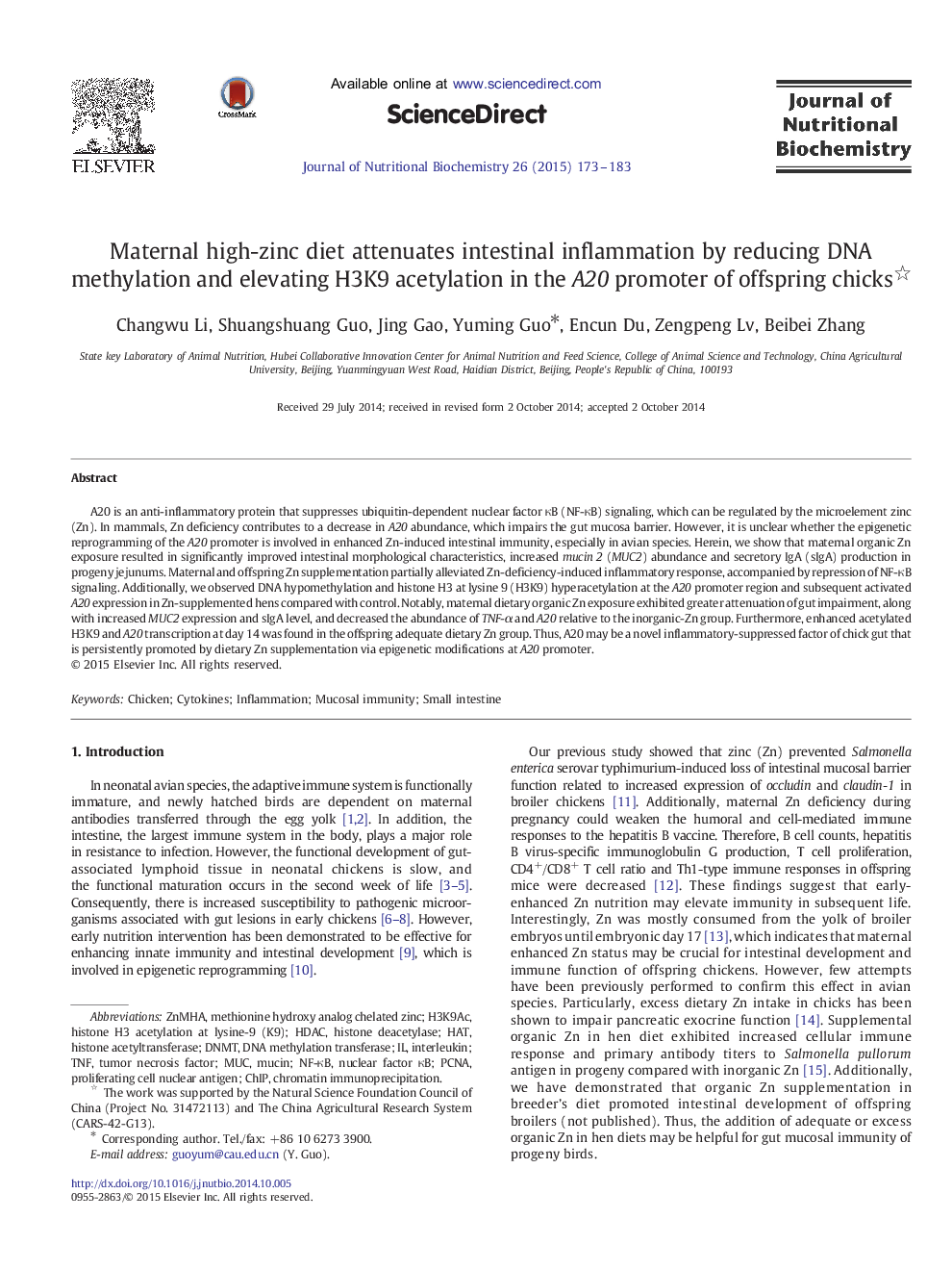| Article ID | Journal | Published Year | Pages | File Type |
|---|---|---|---|---|
| 1989695 | The Journal of Nutritional Biochemistry | 2015 | 11 Pages |
A20 is an anti-inflammatory protein that suppresses ubiquitin-dependent nuclear factor κB (NFκB) signaling, which can be regulated by the microelement zinc (Zn). In mammals, Zn deficiency contributes to a decrease in A20 abundance, which impairs the gut mucosa barrier. However, it is unclear whether the epigenetic reprogramming of the A20 promoter is involved in enhanced Zn-induced intestinal immunity, especially in avian species. Herein, we show that maternal organic Zn exposure resulted in significantly improved intestinal morphological characteristics, increased mucin 2 (MUC2) abundance and secretory IgA (sIgA) production in progeny jejunums. Maternal and offspring Zn supplementation partially alleviated Zn-deficiency-induced inflammatory response, accompanied by repression of NFκB signaling. Additionally, we observed DNA hypomethylation and histone H3 at lysine 9 (H3K9) hyperacetylation at the A20 promoter region and subsequent activated A20 expression in Zn-supplemented hens compared with control. Notably, maternal dietary organic Zn exposure exhibited greater attenuation of gut impairment, along with increased MUC2 expression and sIgA level, and decreased the abundance of TNF-α and A20 relative to the inorganic-Zn group. Furthermore, enhanced acetylated H3K9 and A20 transcription at day 14 was found in the offspring adequate dietary Zn group. Thus, A20 may be a novel inflammatory-suppressed factor of chick gut that is persistently promoted by dietary Zn supplementation via epigenetic modifications at A20 promoter.
